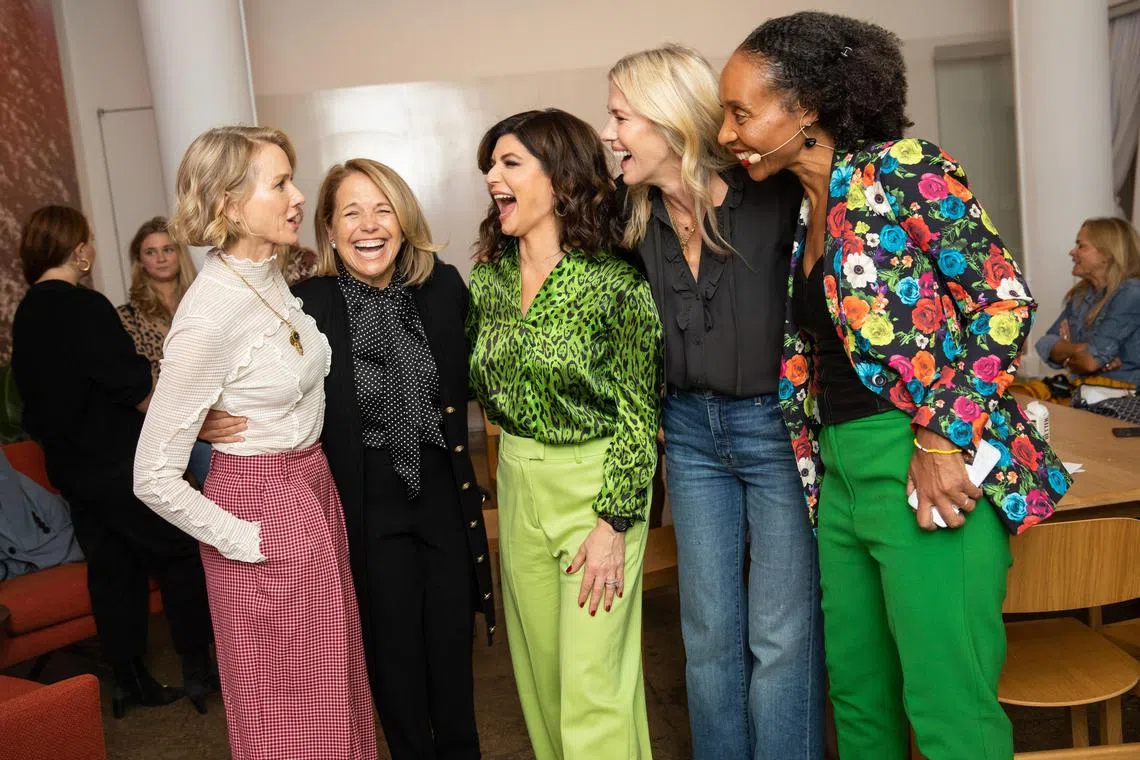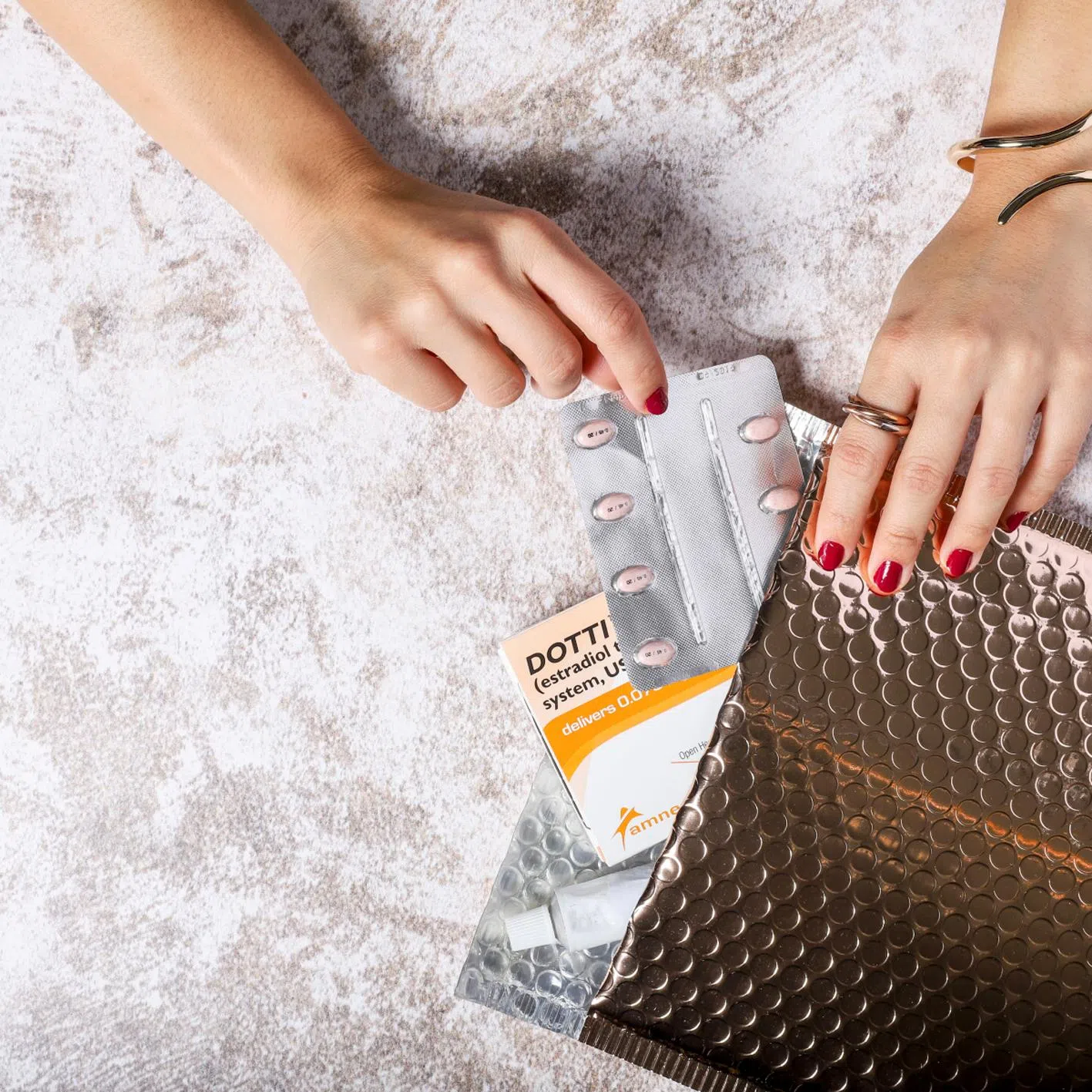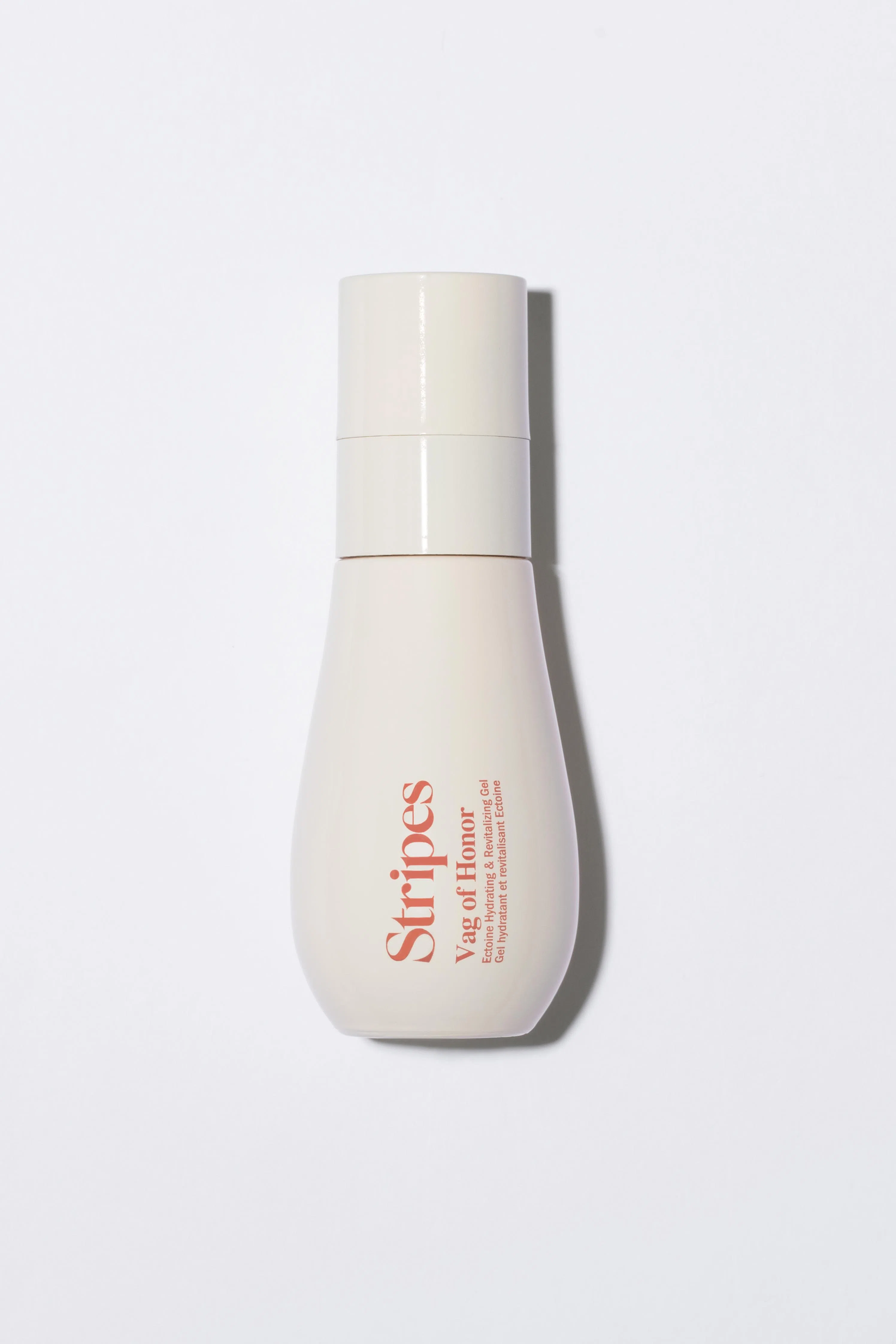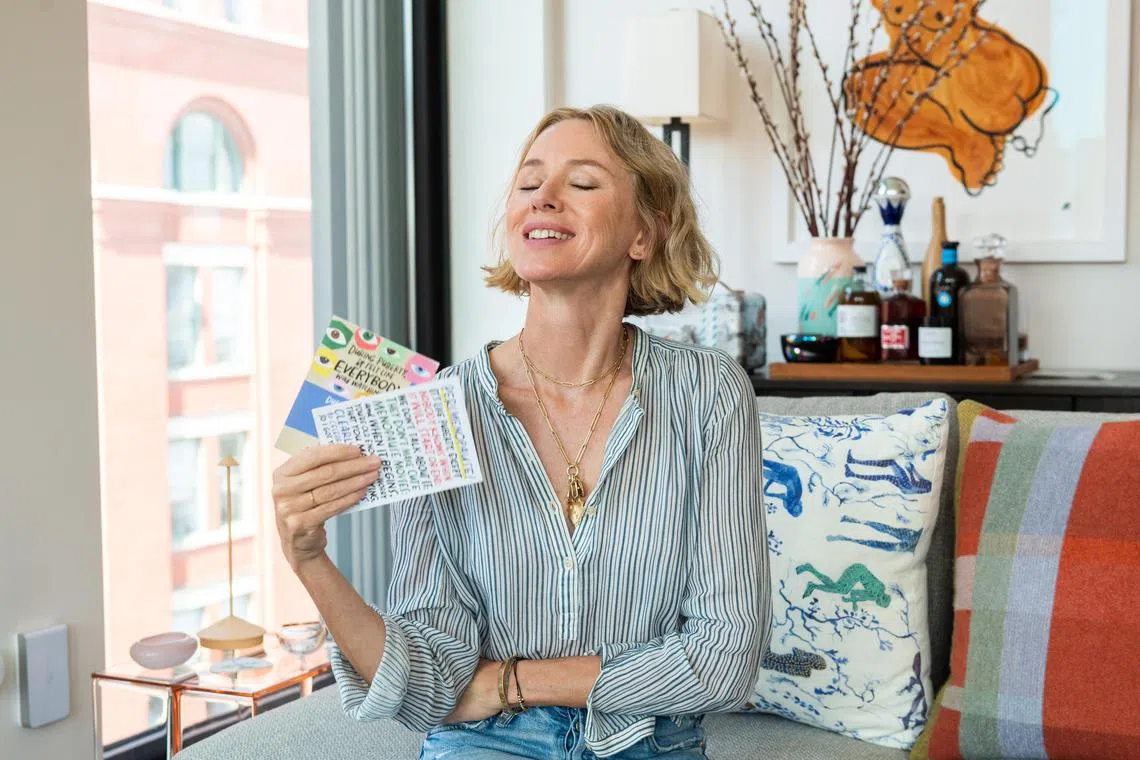Menopause has become a lucrative consumer category
Sign up now: Get ST's newsletters delivered to your inbox

(From left) Actress Naomi Watts, newscasters Katie Couric and Tamsen Fadal, The Swell chief executive Alisa Volkman and creativity strategist Natalie Nixon at a menopause symposium in October 2022.
PHOTO: NYTIMES
Follow topic:
NEW YORK – Women have been going through menopause and its assorted difficulties since forever. Only recently, however, did this fact of life become a lucrative consumer category.
People are in the middle of a menopause gold rush. The market is flooding with high-profile, well-funded menopause-related beauty products and telemedicine start-ups, as well as a growing roster of celebrities willing to admit it is happening to them. There is the potential not only for a big cultural shift to happen, but also for some number of people to profit off it.
After all, women are living longer than ever and have taken unprecedented steps to spend those extra years in excellent health. Has any previous generation in the history of women done quite so many squats? Moisturised with such intensity and care?
Generational shift
Modern menopause can be a long and dynamic slug of time. It comes in three stages. Perimenopause, which typically begins in one’s mid- to late 40s, when the ovaries slow production and oestrogen levels begin to dip. Perimenopause can last as long as 10 years and can cause an enormous range of symptoms – from mood swings and headaches to hot flashes and vaginal dryness. Next is menopause, the moment one year after the last menstruation.
Then, there is post-menopause, which is the period-free rest of a woman’s life, when the risk of heart disease and osteoporosis and pretty much everything else shoots way up.
Gen Z women are profoundly frank when it comes to their ever-evolving bodies: They would never call their period being “on the rag” or “the curse”. They have period underpants marketed for slumber parties, tampons that come in adorable wrappers and “conversation starter” sets of cards for discussing the milestone with the adults in their lives.
As a result of – or, maybe, as a precursor to – these changes in attitude, discussing menopause is no longer taboo.
“I’m going through perimenopause at the moment,” American actress Tracee Ellis Ross, 50, told Harper’s Bazaar magazine last year. “It’s really frying my brain.” In a 2020 episode of her podcast, former United States first lady Michelle Obama, 59, described a hot flash she experienced on Marine One as being “like somebody put a furnace in my core and turned it on high”. American actress Drew Barrymore, 47, remarked on her show that menopause had her feeling like she was filled either with cortisol or cottage cheese.
It is no accident that this is coming at a time when the exceedingly narrow confines of beauty are beginning to stretch. Race and size are becoming more diverse in fashion. So why not age too?
Popular models of the 1990s – Amber Valletta, Christy Turlington and Carolyn Murphy – are experiencing career longevity that models never dared imagine before. Older women have begun appearing in ad campaigns and on runways. Ageing no longer requires that a woman either accept her invisibility shrouded in Eileen Fisher clothes or desperately try to appear forever 28.
Entrepreneurs, as a result, have seen a business opportunity in creating an advocacy and visibility movement for menopause. Ms Alisa Volkman, 49, who has twice greeted new phases of her life with an online start-up (the sex-positive nerve.com in her 20s, followed by the modern parenting hub babble.com) is now on to The Swell, an online membership community for the middle-aged.
Like all new wellness categories, it is an investment category, for a group with specific, underserved needs – and a lot of money.
‘New category’ of health
The new menopause economy divides neatly along medical versus beauty lines.
The telemedicine start-ups deal largely in the prescribing of hormone replacement therapies (HRT), using a business model that has found success in other sectors. Hims & Hers Health, for example, which uses telemedicine to prescribe generic versions of Rogaine, Viagra and a range of antidepressants, birth control and other medications on gender-specific sites, has a market capitalisation of more than US$1 billion (S$1.3 billion). The drugs which the companies sell are generic versions of the name-brand formulations, and the company gets the profit. Subscription models are famously lucrative as subscribers often fail to unsubscribe, even when a need has been met.
But HRT is a complicated issue. After a study in 2002, it was determined that the risks of HRT were greater than the potential upsides. Further studies found that many of those concerns were overblown or not applicable to populations who might benefit from hormone therapy, but many women and doctors were scared off and have stayed that way. According to Dr Stephanie Faubion, a women’s health expert at Mayo Clinic and medical director of the North American Menopause Society, the current official position is that the benefits of hormone therapy typically outweigh the risks for most healthy, symptomatic women younger than 60 and within 10 years of menopause onset. Dr Faubion specified that it should be prescribed by a doctor educated in menopause management.
However, most obstetrics and gynaecology (ob-gyn) residents get about one to two hours of instruction on menopause care and, when surveyed, said they did not feel comfortable managing menopause upon completion of their programmes.
These factors, combined with the pandemic accelerating consumer openness to telemedicine, make for a great big gaping hole of opportunity to investors.

Evernow, a fresh entrant into the telemedicine industry, is helping to facilitate the delivery of prescription hormone therapies via subscription.
PHOTO: NYTIMES
“To discover an entire category of healthcare that is entirely underserved is very, very rare,” said Ms Alicia Jackson, 42, chief executive officer of menopause telemedicine company Evernow, which started in 2022 and offers text consultation with trained doctors who arrange for the delivery of the appropriate prescription hormone therapies on a subscription basis.
When Ms Jackson first started looking into the menopause landscape, she said, she was shocked at how little information and support was available for this huge category of human beings. “I live in Silicon Valley,” she said, “and there are all these male billionaires figuring out how to live forever. It’s like, are you kidding me? Every woman who goes through menopause says it’s like she’s the first person on earth who has ever done it because no one knows how to help. If men went through menopause...” Her voice trailed off.
Ms Jackson said her first call after having the idea for a telemedicine company focused exclusively on treating menopause was to a friend at a Silicon Valley venture capital fund, to ask whether he thought it was worth pursuing. He listened for an hour or so, she said, then wrote her a cheque for US$1 million on the spot.
NEA, a major healthcare venture capital fund, wound up being her lead investor. “It’s a unique thing for investors to have done their homework,” Ms Jackson said. “But they got religion on menopause early.”
Those investors, Ms Liza Landsman and Ms Vanessa Larco, had indeed done their research. After exploring the possibilities for funding fertility companies, Ms Larco said, she was shocked to come across statistics revealing how few gynaecologists are even trained in menopausal medicine, and how many were uncomfortable treating the symptoms of menopause.
After NEA led Evernow’s first round of investments, the company secured more funding from investors, including actresses Gwyneth Paltrow, 50, Cameron Diaz, 50, and Barrymore; soccer player Abby Wambach, 42; and author Glennon Doyle, 46, all of whom agreed to make their involvement public.
Alloy is another splashy menopause telemedicine start-up, begun in 2021, that has Dr Sharon Malone, an ob-gyn in Washington whom Mrs Obama has called “a godsend”, as its chief medical officer. Its offerings are similar to those at Evernow – hormone therapies following text appointments with a trained medical provider. The company was co-founded by Ms Anne Fulenwider, 50, former editor-in-chief of Marie Claire magazine, who pitched her idea in the midst of what she called “a venture capitalist-fuelled start-up frenzy”.
The Drench Revolution
In the other category are the beauty companies that are competing to convince women that the current, enormous beauty market does not consider their very specific needs. Which is mostly for more, more, more moisture – plus cooling sprays.

A revitalising gel product with the name Vag of Honor from the brand Stripes.
PHOTO: NYTIMES
The entries here include Stripes, a line of “scalp to vag” beauty products for the menopausal woman created by British actress Naomi Watts, 54. Stripes sells Vag of Honor revitalising gel and a facial moisturiser called The Drench Revolution.
“I didn’t really get my start until a bit later,” Watts said. “I was 32 at the time of Mulholland Drive (2001) and I was told, ‘It’s all going to be over when you’re 40.’”
But Watts, who is starring in a Netflix series titled The Watcher (2022) and making movies too, is eager to prove that theory wrong. “Sexual currency is suddenly much more expansive and inclusive now,” she said. “I think we are becoming more open to the notion that worth and value come from more than shiny faces and tight bottoms and thigh gaps.”

Actress Naomi Watts is the founder of Stripes, a line of “scalp to vag” beauty products for the menopausal woman.
PHOTO: NYTIMES
Stripes is not alone. Pause is the work of Ms Rochelle Weitzner, a cosmetics executive who panicked after her first hot flash, and recovered by noticing a huge gap in the market. And there is also Better Not Younger, a haircare brand for “ageing hair”. Emmy- and Golden Globe-winning American actress Jennifer Coolidge is an avowed user of its Second Chance shampoo.
Dr Faubion says attention to the needs of midlife women is, in general, a good thing. “But many of these products are capitalising on this need without adding anything new, novel or even effective,” she added. “We don’t want this group of women to pay a premium for the same product that is marketed to younger women for less.”
There is a risk that menopause products can carry an updated version of the pink tax – a long-established tradition of charging more for female grooming products, such as razors and soaps, than their male-pitched counterparts.
It is tricky. As is often the case in the fuzzy area of wellness, there is a collapsing of the health and beauty matrix when it comes to menopause. What here makes a body work better, and what here just makes one feel as if it will all be okay? And is just feeling that it will all be okay, feeling seen, worth it anyway? NYTIMES

